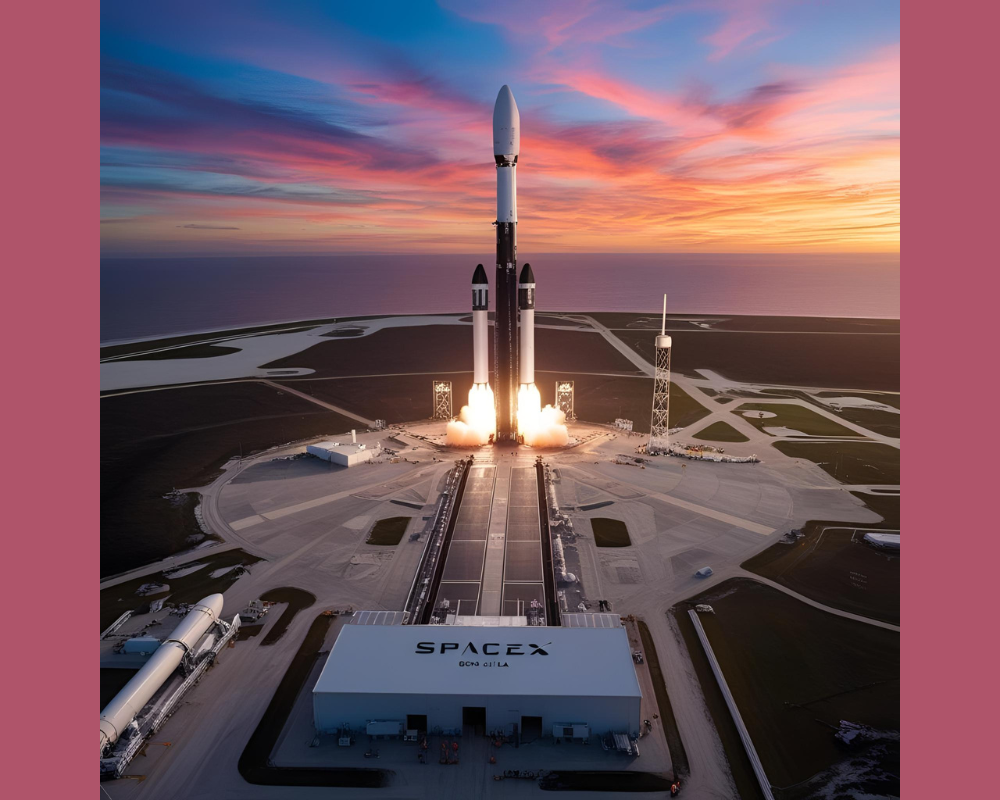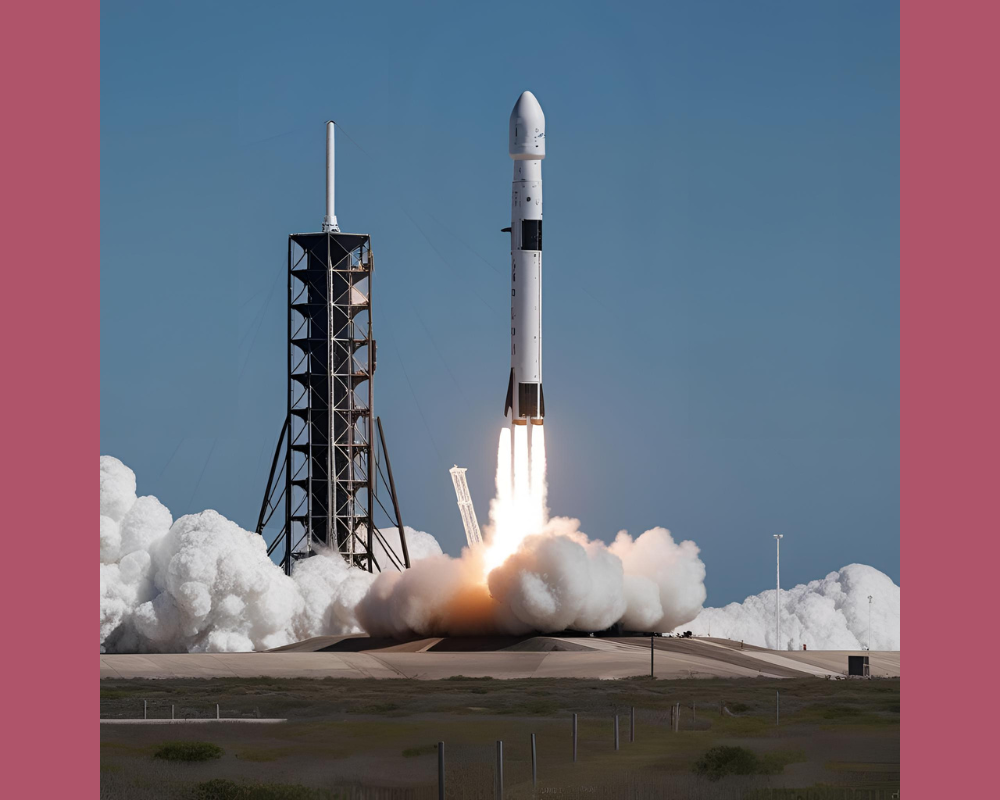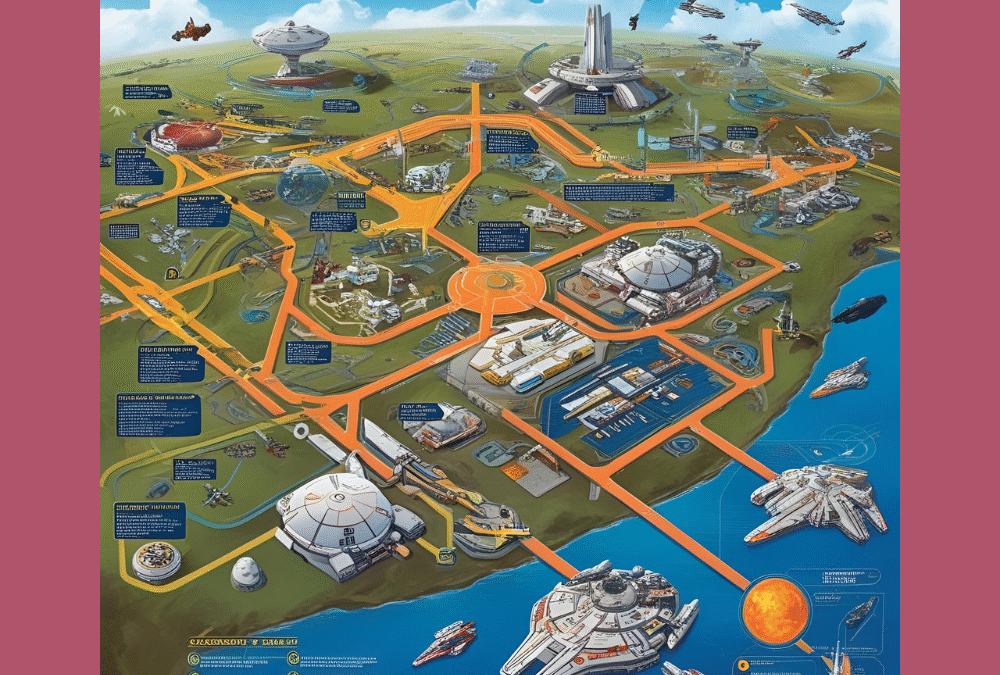
Elon Musk’s vision of a spacefaring future just landed on Earth—in the form of a brand-new Texas city.
As of May 2025, Starbase is officially a municipality, making it the newest city in Texas. Nestled in Cameron County near Boca Chica, the area surrounding SpaceX’s rocket launch facility voted overwhelmingly—by a whopping 97.7%—to incorporate. Covering just 1.5 square miles, Starbase is purpose-built to serve SpaceX operations, with most of its residents expected to be company employees.
Starbase isn’t your typical town. It has been designated a Type C municipality, and its new mayor, Bobby Peden, also happens to be a SpaceX vice president. Two city commissioners round out the governance structure, marking Starbase as the first U.S. city created specifically to support space activities.
But this move raises serious questions: What happens when a private company doesn’t just operate in a city—but becomes the city? Starbase may be a glimpse into the future, where corporate ambition and local governance blur together in ways we’ve never seen before.
Let’s unpack the implications of this bold experiment in privatized urban development—and what it could mean for the future of municipal power in the age of billionaire technocrats.
🏙️Private Ambition Meets Public Reality
In 2021, Musk tweeted about creating the city of Starbase, Texas. While it sounded like another one of his moonshot ideas, the SpaceX CEO followed up and held discussions with local officials. The proposed plan? Expand beyond the current launch site, acquire land, and build infrastructure that would support a functional municipality. A corporate-born town.
But here’s where things get complicated. To become an incorporated city in Texas, a community must go through a formal process involving county approval, public input, and state laws. Starbase’s progression toward that status sparked concerns about what happens when a private company begins to blur the lines between public governance and enterprise interest.
Who sets the rules in Starbase—elected officials, or SpaceX executives?

Would dissent be allowed in a city where the primary employer also runs the town?

What once sounded like a sci-fi fever dream—
—Elon Musk building a private space city in South Texas—is now a fully inked reality. Starbase is no longer an idea; it’s a legal municipality.
So how did Musk pull it off? It turns out that in Texas, creating a new city isn’t rocket science—just a matter of timing, strategy, and a little old-school paperwork (with a modern twist).
To become a Type C municipality, the area around the SpaceX launch site in Cameron County had to meet several basic requirements:
- A population of at least 201 residents (check—mostly SpaceX employees and contractors).
- The land area had to be at least two square miles (close enough—Starbase clocks in at about 1.5, but with enough zoning finesse, it passed).
- A successful incorporation vote by local residents, which came in at a staggering 97.7% approval.
Of course, when most of your “local residents” also happen to be on your payroll, the odds of passing a vote tend to shift in your favor. 🤷♀️
SpaceX executives, including new mayor Bobby Peden, helped shepherd the process through with quiet but aggressive coordination. County officials and Musk’s legal team paved the way by navigating zoning ordinances, infrastructure requirements, and public notice obligations.
The result? A city built from the ground up for one purpose: spaceflight operations, owned and operated (in spirit, if not on paper) by a private space company.
This isn’t just another company town—it’s a whole new flavor of municipal experiment. Think “Cape Canaveral meets Silicon Valley,” but with more Teslas and fewer public meetings.

What does this mean for Starbase Residents?
🏙️ Benefits to SpaceX Employees and Starbase Residents
The incorporation of Starbase as a city offers several advantages for both SpaceX employees and residents:
-
Enhanced Local Governance: As a Type C municipality, Starbase now has the authority to manage local services, infrastructure, and zoning regulations. This autonomy allows for tailored decision-making that aligns with the community’s unique needs, particularly those related to spaceflight operations.
-
Improved Public Services: The city has initiated significant investments in community infrastructure, including a $22 million community center, a $20 million K-12 school, a medical clinic, and multifamily housing developments. These projects aim to enhance the quality of life for residents and support the growing workforce.
-
Streamlined Operations for SpaceX: With municipal control, SpaceX can more effectively coordinate its activities with city planning, facilitating smoother operations for its launch site and related facilities.
🗳️ Election of Mayor and City Commissioners
The incorporation vote took place on May 3, 2025, resulting in a decisive outcome: 212 votes in favor and 6 against.
Simultaneously, residents elected the city’s initial leadership:
-
Mayor: Bobby Peden, a SpaceX vice president, ran unopposed and was elected as the city’s first mayor.
-
City Commissioners: Two commissioners were also elected unopposed, both with affiliations to SpaceX, ensuring alignment between the city’s governance and the company’s operations.
💰 Taxation in Starbase
As an incorporated city, Starbase possesses the authority to levy local taxes to fund municipal services and infrastructure projects.
However, it’s noteworthy that SpaceX previously secured a 10-year property tax exemption from Cameron County in 2014 to stimulate economic development in the region.
While this exemption may reduce immediate tax revenues from the company, the city’s ability to impose taxes provides a mechanism to support its long-term financial sustainability and service provision.
🧑⚖️When Corporations Become City Planners
Musk isn’t the first mogul to dream of a company town. From Pullman, Illinois, to Facebook’s Menlo Park expansion, history shows a recurring trend of corporations trying to control their environment. The difference here is scale and scope.
Critics argue that this could create a dangerous precedent where wealthy individuals or companies essentially purchase governance. Who’s responsible for policing, zoning laws, or civil rights enforcement in a town bankrolled by a billionaire? Would dissent be allowed in a city where the primary employer also runs the town?
On the flip side, supporters say Musk is accelerating infrastructure, jobs, and investment in an area that otherwise saw little growth. If innovation is outpacing bureaucracy, perhaps it’s time to update the way cities are built.
🔍 Future Lens:
If cities of the future are built by billionaires, who gets to vote—and who gets left behind? Starbase may be the first of many company towns reborn as tech-fueled utopias, but real civic life depends on more than glossy infrastructure and shareholder vision. The question is whether democracy can keep up with the rocket speed of private ambition.
📅 Timeline: From Tweet to Takeoff – The Birth of Starbase
March 2, 2021
📱 “Creating the city of Starbase, Texas” — Elon Musk tweets the now-infamous declaration. The internet does a collective double-take. Is he serious? (Spoiler: He’s always serious. Eventually.)
March 2021 – Early 2022
🛰️ SpaceX begins quietly expanding infrastructure in Boca Chica, while local rumors of incorporation swirl. Musk continues to tease the idea in interviews and online.
Mid 2022
🏗️ Legal and zoning groundwork begins behind the scenes. SpaceX-friendly staff and contractors begin establishing semi-permanent residency near the launch site.
2023
🗺️ Cameron County officials confirm initial steps toward incorporation are under discussion. Critics raise concerns about private interests hijacking public governance.
Late 2024
📋 Official paperwork for incorporation is filed under Texas law. Requirements for a Type C municipality are addressed—including the 200+ resident minimum.
April 2025
🗳️ A formal vote is held among the proposed Starbase residents.
✅ Result: 97.7% vote in favor of incorporation.
May 2025
🎉 Starbase becomes the newest official city in Texas.
Bobby Peden, a SpaceX VP, is named mayor. Two city commissioners are also installed. Starbase becomes the first U.S. city built explicitly to serve spaceflight and private industry.

SIDE NOTE: From the West Wing to the World Stage: Musk’s Next Act
Elon Musk’s tenure within the Trump administration has recently undergone significant shifts, marked by both his formal departure from the White House and continued influence on U.S. policy, particularly in the Middle East. According to The Daily Beast, Musk has physically vacated his role at the Department of Government Efficiency (DOGE) but remains engaged through remote consultations, indicating a strategic retreat rather than a complete disengagement. This move aligns with reports from Politico, which suggest that Musk’s diminishing presence is a response to internal concerns about his unpredictability and the political liabilities associated with his high-profile involvement.
Despite stepping back domestically, Musk’s international engagements underscore his enduring clout. The Guardian details his participation in the Saudi-US Investment Forum, where he showcased Tesla’s Optimus robots and announced Starlink’s expansion into Saudi Arabia’s maritime and aviation sectors. These developments highlight Musk’s ability to leverage his technological ventures to maintain a significant role in global affairs, even as his formal governmental responsibilities wane.
The Guardian
However, Musk’s assertive approach has not been without contention. Axios reports a heated altercation between Musk and Treasury Secretary Scott Bessent over leadership appointments within the IRS, reflecting underlying tensions within the administration. Such incidents illustrate the challenges of integrating a high-profile entrepreneur into the structured environment of federal governance, where differing management styles and priorities can lead to friction.
In summary, while Elon Musk has officially stepped back from his governmental role, his actions and influence continue to resonate within both domestic and international spheres, reflecting a complex interplay between private enterprise and public policy.
The Guardian
🌐Final Thoughts
“To boldly go where no municipality has gone before…”
Starbase is more than just a launchpad for rockets—it’s a litmus test for how much influence private enterprise should wield in shaping public life. As lines blur between CEO and city planner, Musk’s latest venture forces us to ask: is this the future of governance or a futuristic land grab?

Related Articles
Related
Luigi Mangione Death Penalty Dropped, Reshaping Prosecution Strategy
A judge has removed the death penalty as a sentencing option in the case against Luigi Mangione, delivering a major win for the defense and significantly narrowing the scope of the prosecution. The ruling eliminates the most severe potential punishment Mangione faced...
Neo Langston Arrested for Failure to Appear as LA Witness
Neo Langston was arrested in Montana this week on a Los Angeles Superior Court warrant for failure to appear as a witness, according to Lewis and Clark County Jail records. Montana authorities confirmed they were assisting the Los Angeles Police Department’s...
Judge Orders Timothy Busfield Release After Calling Evidence “Neutral”
The public reaction to allegations involving children often moves faster than the legal process — and sometimes faster than the evidence itself. That tension was on full display in the recent bond hearing in State of New Mexico v. Timothy Busfield, where a judge...

